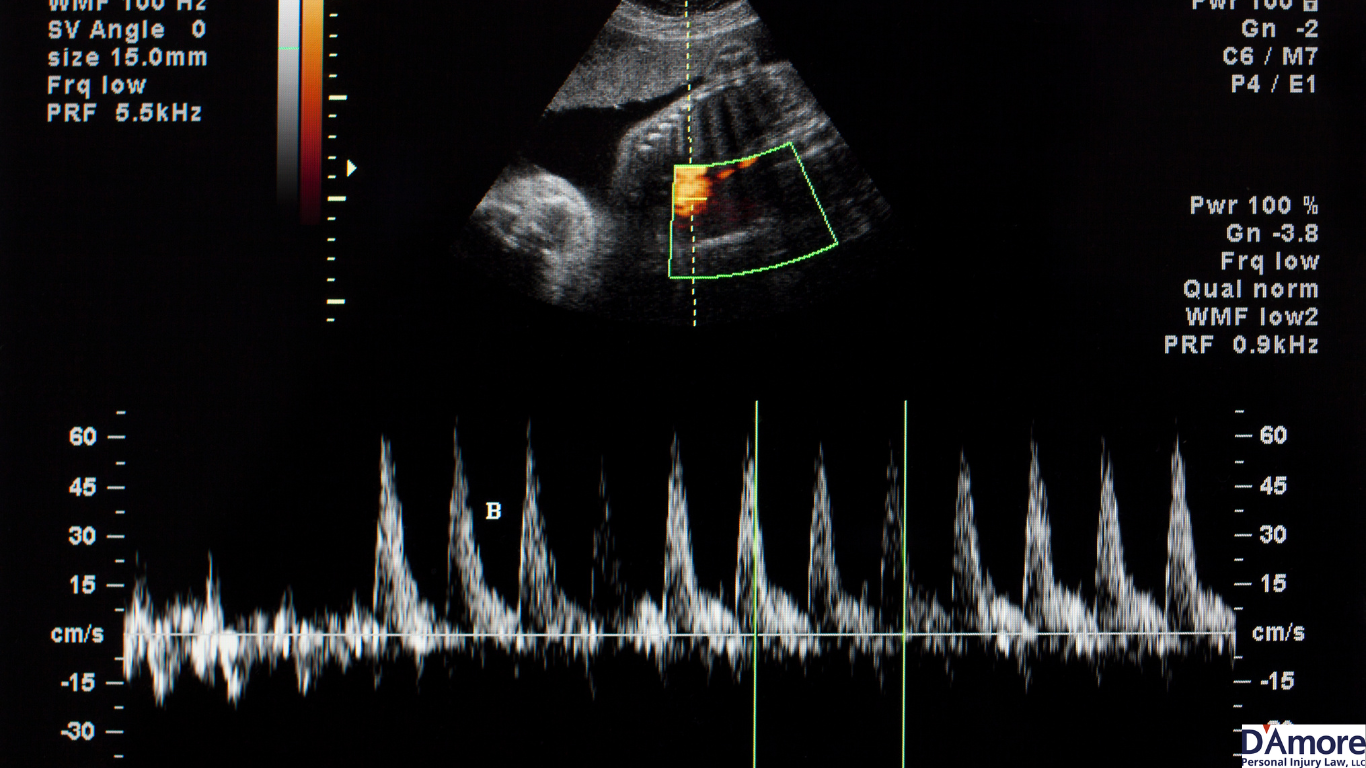How Do You Prove Negligence for Failure to Monitor Maternal or Fetal Health?
Expecting a child is one of life’s most joyous milestones. It is also a time when mothers and their unborn babies rely heavily on the expertise of medical professionals to ensure a safe pregnancy and delivery. However, when healthcare providers fail to properly monitor maternal or fetal health, the consequences can be devastating. In Maryland, proving negligence in such cases requires a clear understanding of medical malpractice laws and the evidence necessary to demonstrate that a healthcare provider’s failure caused harm. This blog will walk you through the process, explain the legal principles, and help you understand your rights if you or your loved one has suffered due to medical negligence.
What Is Medical Negligence?
Medical negligence occurs when a healthcare provider—such as a doctor, nurse, or hospital staff—fails to provide the accepted standard of care, resulting in harm to the patient. The “standard of care” refers to the level of care that a reasonably competent professional with similar training would provide under similar circumstances. For instance, monitoring maternal and fetal health typically involves regular prenatal check-ups, ultrasounds, monitoring vital signs, and addressing potential complications promptly.
When healthcare providers deviate from this standard—whether through misdiagnosis, lack of timely interventions, or failure to monitor warning signs—they may be held liable for medical malpractice. In cases involving maternal or fetal health, proving negligence hinges on showing that the provider’s failure directly caused harm to the mother or baby.
The Duty of Care in Monitoring Maternal and Fetal Health
In Maryland, as in other states, medical professionals owe a duty of care to their patients. During pregnancy, this duty is heightened due to the dual responsibility of caring for both the mother and the developing fetus. Monitoring involves several critical steps:
- Regularly assessing the mother’s blood pressure, weight, and overall health.
- Monitoring the fetus’s growth and development through ultrasounds and other tests.
- Screening for complications like gestational diabetes or preeclampsia.
- Identifying and addressing signs of fetal distress during labor and delivery.
When a healthcare provider neglects any of these responsibilities, it can lead to severe complications, such as birth injuries, premature delivery, or even wrongful death. Proving negligence requires demonstrating that these failures breached the duty of care.
How to Establish Negligence
To succeed in a medical malpractice case, you must establish four key elements:
- Duty of Care: You must prove that the healthcare provider owed you a duty of care. In the context of maternal and fetal health, this is typically straightforward, as doctors and nurses are responsible for providing care during pregnancy and childbirth.
- Breach of Duty: You must show that the provider failed to meet the accepted standard of care. For example, if a doctor ignored signs of fetal distress or failed to order necessary tests, this could constitute a breach of duty.
- Causation: You must demonstrate that the provider’s breach directly caused harm. This is often the most challenging element to prove, as the defense may argue that the harm was due to other factors rather than negligence.
- Damages: Finally, you must prove that the negligence resulted in actual harm, such as physical injuries, emotional distress, or financial losses.
Evidence Needed to Prove Negligence
Gathering strong evidence is essential to building a successful medical malpractice case. In Maryland, evidence to prove negligence in cases involving maternal or fetal health may include:
- Medical Records: These documents provide a detailed history of the care you received, including test results, doctor’s notes, and treatment plans. Any discrepancies or omissions can be critical evidence of negligence.
- Expert Testimony: Medical experts play a crucial role in explaining how the provider’s actions deviated from the standard of care. Their testimony can help establish what a competent professional would have done in similar circumstances.
- Witness Statements: Statements from nurses, other medical staff, or family members who witnessed the events can provide valuable insights.
- Photographs or Videos: Visual evidence of injuries or complications can strengthen your case.
- Timeline of Events: Creating a detailed timeline of appointments, tests, and symptoms can help pinpoint where the negligence occurred.
Your attorney will use this evidence to demonstrate how the provider’s failure to monitor maternal or fetal health caused harm.
Common Examples of Negligence in Maternal or Fetal Health
Negligence can take many forms, but some of the most common examples include:
- Failing to detect and treat maternal infections.
- Ignoring signs of fetal distress, such as abnormal heart rates.
- Mismanaging labor and delivery complications, such as shoulder dystocia.
- Delaying or failing to perform an emergency C-section when necessary.
- Misdiagnosing or failing to diagnose conditions like preeclampsia.
- Administering incorrect medications or dosages.
Each of these scenarios can lead to devastating consequences, including lifelong disabilities, traumatic birth injuries, or loss of life. If any of these circumstances apply to your case, you may have grounds for a medical malpractice claim.
Maryland’s Legal Requirements for Medical Malpractice Cases
Maryland has specific laws governing medical malpractice cases, including claims involving maternal or fetal health. One key requirement is the Certificate of Merit. Before filing a lawsuit, you must obtain a written statement from a qualified medical expert confirming that the provider’s care deviated from the accepted standard and caused harm. This step ensures that only legitimate claims proceed to court.
Maryland also imposes a statute of limitations, which sets strict deadlines for filing a medical malpractice lawsuit. In most cases, you must file within five years of the date of the injury or three years from the date the injury was discovered, whichever comes first. Missing this deadline could bar you from seeking compensation.
Additionally, Maryland’s cap on non-economic damages limits the amount you can recover for pain, suffering, and emotional distress. For claims filed in 2025, the cap is $890,000. However, this does not limit compensation for economic damages, such as medical bills and lost wages.
Challenges in Proving Negligence
Proving negligence in medical malpractice cases can be complex and challenging. Defendants often argue that their actions were reasonable under the circumstances or that the harm resulted from unavoidable complications rather than negligence. To counter these arguments, your attorney must present compelling evidence and work with skilled medical experts who can effectively explain the provider’s failures.
Additionally, the defense may try to shift blame onto the patient, claiming contributory negligence. Maryland follows a strict contributory negligence rule, which means that if the patient is found even slightly at fault, they may be barred from recovering damages. An experienced attorney can help refute these claims and protect your right to compensation.
The Importance of Hiring an Experienced Attorney
Medical malpractice cases are among the most complex types of personal injury claims. To navigate the legal process and maximize your chances of success, it is crucial to work with an experienced attorney who specializes in medical negligence cases. A skilled lawyer can:
- Investigate the facts of your case.
- Identify and consult with qualified medical experts.
- Handle all legal filings and deadlines.
- Negotiate with insurance companies on your behalf.
- Advocate for your rights in court, if necessary.
Having a knowledgeable attorney by your side can make all the difference in holding negligent healthcare providers accountable and securing the compensation you deserve.
Maryland Maternal and Fetal Health Negligence Lawyer
If you or a loved one has been harmed due to a healthcare provider’s failure to monitor maternal or fetal health, you do not have to face this difficult situation alone. The legal team at D’Amore Personal Injury Law, LLC understands the physical, emotional, and financial toll that medical negligence can take on families. We are here to provide compassionate guidance and aggressive representation to help you seek justice.
Contact D’Amore Personal Injury Law, LLC by calling (410) 846-0284 or contacting us online for a consultation. Let us review your case and explain your legal rights and options. You deserve answers, accountability, and fair compensation for the harm you have suffered.
FREE Case Consultation
Fill out the form below and we will contact you.
Or, give us a call at
410-324-2000

What Makes Motorcycle Accident Lawsuits Different?
Motorcycle riders have the same rights as all other road users, yet they are often overlooked or disregarded by other

Understanding Medical Malpractice Settlements in Maryland
Understanding Medical Malpractice Settlements in Maryland Medical malpractice cases can be emotionally and financially devastating for victims and their families.

How Long Does It Take to Settle a Traumatic Brain Injury Case in Maryland?
How Long Does It Take to Settle a Traumatic Brain Injury Case in Maryland? Traumatic brain injuries (TBIs) can have
